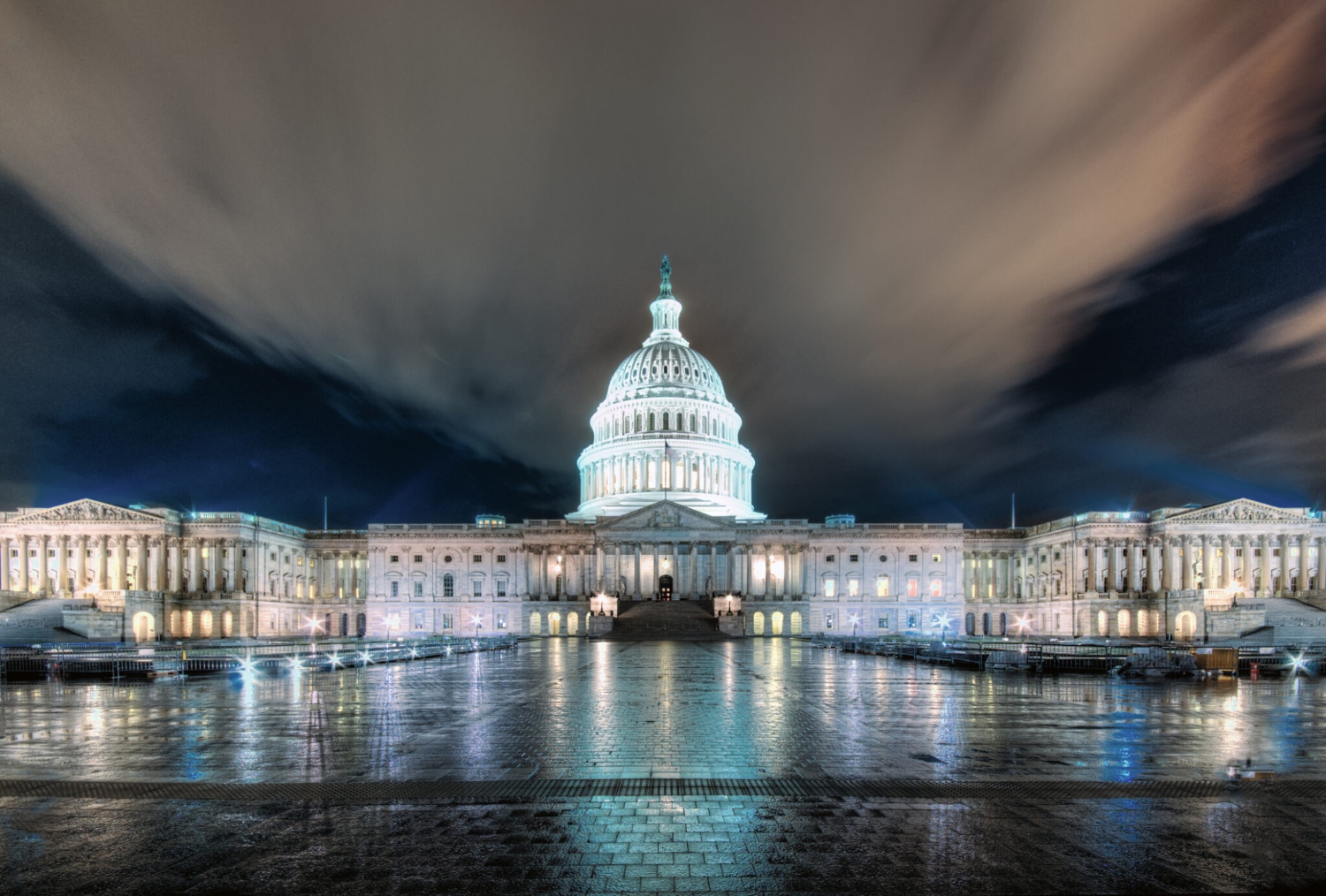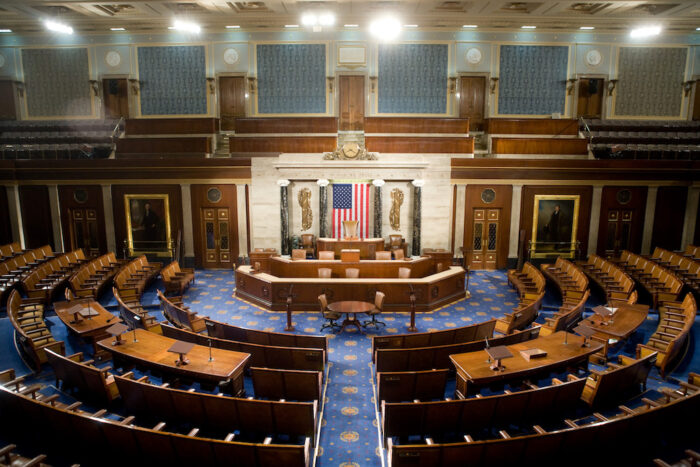U.S. House approves debt limit package, sending it to Senate with just days until default deadline

The U.S. House took a broadly bipartisan vote Wednesday night on the debt limit package, sending it to the U.S. Senate where lawmakers are expected to vote quickly to clear the measure.
The bill would extend the nation’s borrowing limit through Jan. 1, 2025 and set caps on discretionary spending for two years. It would also make changes to work requirements on some federal safety net programs and overhaul aspects of the energy permitting process. The House approved the bill following a 314-117 vote; 149 Republicans supported the measure and 71 opposed it. The Democratic vote was 165 in favor and 46 opposed.
While members of both political parties broadly backed the legislation, they each criticized the compromises negotiators made to broker an agreement.
North Carolina Rep. Patrick McHenry, one of the Republican negotiators who brokered the deal, said the bill was the product of a “long, laborious and tough” process.
The measure, he said, is the “most conservative spending package” he’s voted on during his time in Congress, though he noted it’s a product of divided government where the GOP controls the House while Democrats control the Senate and White House.
“This rates as one of the largest deficit reduction bills in American history and it will fundamentally change the spending trajectory here in Washington — with more work to do and more work ahead,” McHenry said.
Rep. Steny Hoyer (D-5th), a former House majority leader, said the agreement was better than the original Republican plan for addressing the debt ceiling.
“What today is about is whether we’re going to hurt 330 million Americans,” he said on the House floor. “Whether we’re going to hurt the global economy. That’s what this is about. And from my perspective, there is only one answer: to pass a bill that in fact does not have America welch on its debts. Or, alternatively, to defeat a bill, which will devastate our economy and be catastrophic globally. That’s why we’re here.”
Several Democrats described the measure as a compromise, noting that neither side got everything it wanted.
New Jersey Democratic Rep. Bill Pascrell criticized Republicans for ruling out all changes to the tax code during negotiations and for rescinding some money to boost the Internal Revenue Service’s budget.
“We want to make sure everybody pays their fair share — what in God’s name is wrong with that,” Pascrell said.
If Congress doesn’t update the tax code, Pascrell said, lawmakers haven’t done their jobs.
The package would set federal spending at $886 billion for defense and $704 billion for nondefense during the fiscal year slated to begin Oct. 1. The following year, fiscal 2025, it would cap defense spending at $895 billion for defense and $711 billion for nondefense.
The 100-page bill holds numerous additional provisions, including changes to how the federal government permits energy projects as well as language to claw back $28 billion in COVID-19 funds and about $2 billion in funding for the Internal Revenue Services.
The measure would make changes to work requirements for the Temporary Assistance for Needy Families program and the Supplemental Nutrition Assistance Program.
The nonpartisan Congressional Budget Office’s assessment of the legislation says the package’s provisions on discretionary spending would reduce outlays by $1.332 trillion during the next decade.
Clawing back some of the $80 billion in funding that Democrats included for the Internal Revenue Service in their signature climate change, healthcare and tax package known as the Inflation Reduction Act, or IRA, would actually increase the deficit during the next decade, according to CBO.
CBO Director Phillip Swagel wrote the cut to IRS funding would decrease spending “by $1.4 billion and decrease revenues by $2.3 billion over the 2023–2033 period, resulting in a net increase in the deficit of $900 million over that period.”
“CBO anticipates that rescinding those funds would result in fewer enforcement actions over the next decade and in a reduction in revenue collections,” Swagel wrote.
Changing some work requirements and expanding eligibility for SNAP would increase federal spending by $2.1 billion while changes to TANF would reduce it by $5 million, according to CBO.
The section of the bill that rescinds or claws back $27.1 billion in COVID-19 budget authority would reduce federal spending outlays by $11 billion during the 10-year budget window, according to CBO.
The majority of those funds, CBO said, “would come from the Public Health and Social Service Emergency Fund and from certain infrastructure and disaster relief programs.”
The Congressional Research Service explains that budget authority “allows federal agencies to incur obligations, such as entering into contracts, employing personnel, and submitting purchase orders” while outlays “represent the actual payment of these obligations, usually in the form of electronic transfers or checks issued by the Treasury Department.”
Overall, CBO said, the debt limit package would reduce the deficit by $1.5 trillion during the next decade.
That didn’t prevent U.S. Rep. Andy Harris (R-!st), the lone Republican in Maryland’s congressional delegation, from voting against the measure.
“After reading this bill, I have decided to vote against it because only in Washington would a bill that actually increases the debt ceiling by $4 trillion be celebrated as a ‘Fiscal Responsibility Act,’ Harris wrote on Twitter. “My constituents sent me to Congress to permanently change the way Washington does business, and this includes getting our fiscal house in order.”
All of Maryland’s House Democrats wound up voting for the measure, though earlier in the week Rep. Kweisi Mfume (D-7th) openly deliberated about whether he would.
On to the Senate
Senate Majority Leader Chuck Schumer, a New York Democrat, said Wednesday morning that senators should prepare to vote quickly on the package after it arrives from the House.
“I cannot stress enough that we have no margin for error,” Schumer said. “Either we proceed quickly and send this bipartisan agreement to the president’s desk, or the federal government will default for the first time ever.”
Schumer indicated during an afternoon press conference he might not allow amendment votes that some Republicans have been calling for in order to allow the bill to move quickly to final passage.
“We can’t send anything back to the House. That would risk default,” Schumer said.
Treasury Secretary Janet Yellen warned last week that the country could begin a default on June 5 without a new debt limit law.
A default would have prevented the federal government from borrowing any more money to pay all of the country’s bills in full and on time. That would have meant delayed payments for hundreds of federal programs, including military paychecks, Social Security and Medicare. It also would have negatively impacted the global economy.
Senate Minority Leader Mitch McConnell, a Kentucky Republican, said once the debt limit package reaches that chamber, he’ll “be proud to support it without delay.”
McConnell, however, expressed disappointment with the caps on defense spending, saying it was the “worst part of the deal.”
“I don’t think it’s as good as I would like,” McConnell said. “But if you look at the totality of the agreement, I think, it should be supported and our defense needs will still be there.”
McConnell said his hope is that if senators who want amendment votes are given those votes, they would yield back time, allowing the chamber to vote on final passage Thursday or Friday.
After that vote, the package will go to President Biden for his signature.
Josh Kurtz contributed to this report.




 Creative Commons Attribution
Creative Commons Attribution